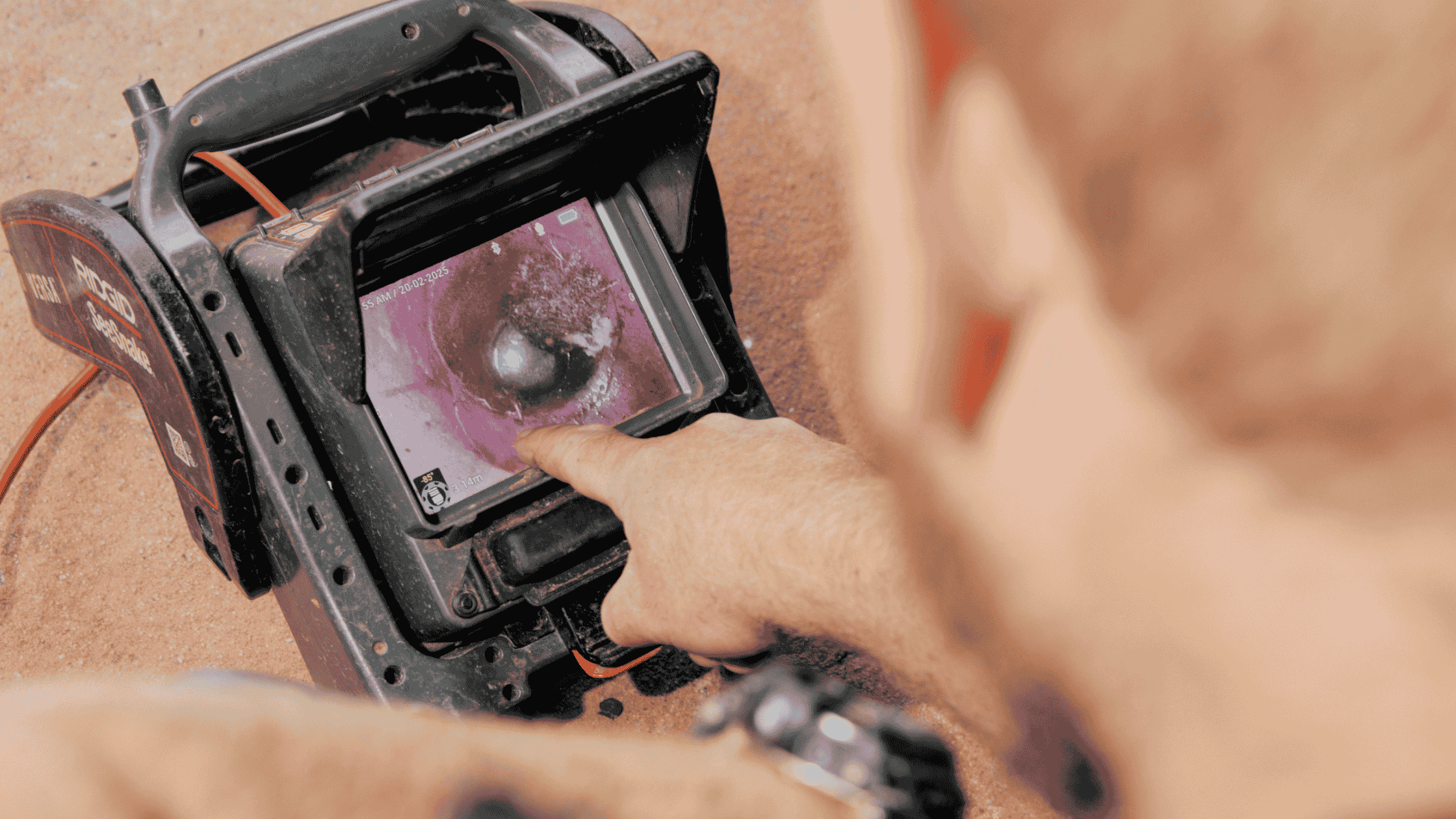Hidden Water Leaks: Signs You Need Professional Detection
Unlike a burst pipe that floods your kitchen and demands immediate attention, hidden leaks are sneaky little troublemakers.

If you've ever opened your water bill to a larger-than-usual number, noticed a weird smell in your basement that won't go away, or literally seen water leaking from somewhere it shouldn't, your home is telling you something.
Unlike a burst pipe that floods your kitchen and demands immediate attention, hidden leaks are sneaky little troublemakers. They work in silence, wasting water, encouraging mould growth, and slowly damaging your home's structure. Annoyingly, by the time you actually see the damage, the problem has often been going on for weeks or even months.
The tell-tale hidden water leak signs
- Your water bill
The most obvious red flag is usually staring you right in the face every month. If your water bill suddenly jumps without any explanation, something's up. Most water companies now provide online usage comparisons, so you can easily spot when your consumption goes haywire.
- Visual clues
Water stains on your ceiling or walls are like breadcrumbs leading to the source of your problem. These yellowish or brown spots start small but grow over time, telling us that water has been travelling in places it shouldn't be. You might also notice paint that's peeling or bubbling, wallpaper that's coming loose, or floors that feel spongy underfoot. If your ceiling starts to sag, that's a potential collapse waiting to happen, and you need to act fast.
- Your nose
That persistent musty smell that makes your basement feel like a damp cave is mould, having a field day in the moisture created by your hidden leak. This smell will keep coming back until you deal with the source.
- Weird sounds
In the quiet moments, especially at night, you might hear dripping, hissing, or the sound of water moving when all your taps are off. Don't ignore it.
- Physical changes
Sometimes leaks announce themselves through changes in water pressure or mysterious warm spots on your floor. You might even notice unwanted guests like termites and other pests who love the moisture and rotting wood that come with untreated leaks.
DIY detective work
Before you call in the professionals from Good Maintenance, there are a few simple tests you can do to confirm your suspicions:
- The water meter test
This is your best friend for leak detection. Turn off every single water-using device in your home (faucets, washing machine, dishwasher, ice maker, sprinklers, etc.). Then, check your water meter and look for the little triangle or wheel that spins when water flows. Wait 30 minutes to an hour without using any water, then check again. If that meter moved even slightly, you've got a leak somewhere.
- The great divide test
Once you know there's a leak, you can determine if it's inside your house or in the line coming from the street. Find your main water shut-off valve (usually in the basement or near an outside spigot) and turn it off. If the meter stops moving, your leak is inside. If it keeps moving, the problem is in your supply line.
- Toilet truth serum
Toilets are notorious secret water wasters. Drop some food colouring in your toilet tank, wait 15-20 minutes without flushing, and then check the bowl. If you see coloured water, your toilet is silently dumping water down the drain all day long.
Why DIY has its limits (and when to call for backup)
Those DIY tests are great for answering "Do I have a leak?" but they can't tell you where it is, how bad it is, or what's causing it. That's where the guesswork gets expensive and destructive.
Without professional equipment, finding a hidden leak often means playing a costly game of "let's cut holes in walls and see what we find." This approach can quickly turn a manageable repair into a renovation nightmare.
Professional leak detection brings the right tools to the job. Our specialists use acoustic equipment that can hear water escaping through tiny cracks, thermal cameras that see moisture patterns through walls, and fibre-optic cameras that can look inside your pipes. Our team has X-ray vision for your plumbing.
Call the experts at Good Maintenance today
Untreated leaks can compromise your home's structure, create serious health hazards from mould, and even pose electrical and fire risks when water meets wiring. While simple DIY tests can confirm your suspicions, finding and fixing hidden leaks is a job for professionals with the right equipment and expertise.
A professional leak detection from Good Maintenance is insurance against disaster. Protect your family's health and your home's value by giving us a call when your home starts talking. Trust us, it pays to listen and to get professional help to translate the leaky message your home is sending you.